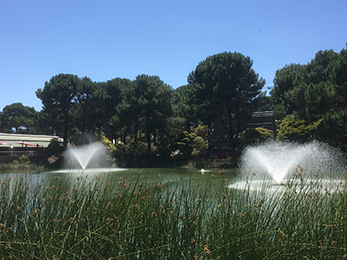ECU encourages staff and students to choose sustainable and healthy alternatives to individual car trips.
Use of active forms of transport such as walking, cycling and public contributes to improved air quality, increases incidental exercise and reduces traffic congestion.
Monitoring emissions
ECU monitors its progress against its objective to reduce greenhouse gas emissions resulting from travel to and from the University. Specifically, we will work towards an increase of 1-3% of staff and students using active forms of transport.
Results from Travel Surveys and previous studies suggest that staff and students are starting to travel to ECU using active forms of transport, although the proportion of those that drive alone remain much greater.
The location of the Joondalup and South West campuses is thought to influence decisions regarding transportation mode.
ECU helps staff and students to switch to active transport modes through:
- the provision of end of trip facilities;
- encouraging staff participation in various cycling and activity challenges;
- providing SmartRider cards to staff to encourage the use of public transport for business-related travel; and
- working with Transperth to introduce a free ‘CAT Bus’ service from Joondalup bus port to ECU Joondalup campus.
More information:

